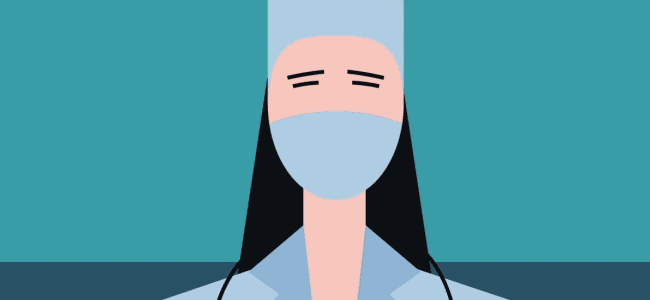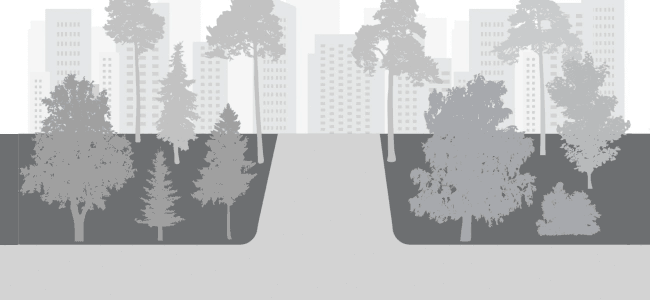Envision Change: A Different Future for Cardiology, Medicine, Research, and Health
We’re capping 2020 with five feature stories, loosely connected by the fact that, at the end of a very dark year, they shine with hope.

In regular times, the TCTMD news team would spend December working on stories about the “biggest news” in cardiology from the past 12 months. That seemed tone-deaf in 2020. We still covered top cardiology advances—the American Heart Association's annual list, TCTMD’s own top 10 by clicks, and an On Record review of 2020 with Davide Capodanno, MD, PhD (University of Catania, Italy), and Karol Watson, MD, PhD (University of California, Los Angeles). But after a year of assigning the TCTMD journalists stories on COVID-19 clots, strokes, myocardial damage, and sudden deaths; missing STEMIs and toxic drugs; inadequate PPE; and physician burnout, I figured it would be great to write about something uplifting. And surely our readers, too, would welcome a change of tone?
I asked each of our reporters if they could think of a question, big or small, that would fill in this blank: Imagine a world where . . . ? Some of the ideas they came back with sprang in concrete ways from COVID-19. How would the pandemic change the way research is done? How might it shake up long-established hierarchies in medicine? How has it sparked physicians to speak up? Other ideas stemmed from nonpandemic news that made its mark in 2020. Is it possible to imagine a scenario where clinical trials aren’t funded by industry? Could a world exist without unnecessary, life-changing procedures that disproportionally affect Black Americans?
We put these big-picture questions to physicians around the world and many times were surprised, both by what we learned and by how they interpreted the question itself. The end result is a series of five very different features—mostly unrelated except for the fact that, at the end of a very dark year, they shine with hope.
From Heroes to Humans: How Doctors Found Their Voices in 2020

Doctors put their own lives on the line in 2020 and were heralded as superheroes for doing so. As time wore on, conspiracy theories gained steam, and public health advice became fodder for political posturing, though, physicians have been inspired to do something they’ve shied away from in the past: speak out.
The desire to take a stand on something that’s not strictly “medical” is a relatively new phenomenon for the profession. But as a range of cardiologists made clear to Caitlin E. Cox: 2020 has been a tipping point. The global pandemic was only one of many motivators. Physicians also spoke up about eroding faith in science, the deep political divide in the United States, and the groundswell of support for antiracist advocacy. If being a good doctor also means being human, they said, then now is the time to call for change.
The Hope Dealers: How Clinicians and New Tech Could End Unnecessary PAD Amputations

Black Americans are three to four times more likely to experience a major amputation as a result of advanced peripheral artery disease. The situation is similarly dire for Latinx patients in the United States, who are up to 75% more likely to experience an amputation than whites, as well as for Native Americans, who are twice as likely. As L.A. McKeown explains in her feature story, there is legislation in the works aimed at expanding Medicare and Medicaid coverage for PAD screening and disallowing payments for nontraumatic, nonemergent amputations unless anatomical testing has been done in the prior 3 months. Physicians—the “Hope Dealers”—leading the grassroots efforts to stamp out unnecessary amputations aren’t waiting for laws to change to save limbs and lives.
Funding the Future: How Industry Support for CV Trials Could Evolve

In a year when so many other aspects of cardiology practice and research have been upended, and the vast majority of COVID-19-related research evolved without drug and device company funding, is it possible to picture medical advances occurring without the backing of company dollars? And to imagine a world where large-scale, government-funded trials are the norm rather than the exception? TCTMD’s Michael O’Riordan put those questions to doctors and scientists. To his surprise, everyone he interviewed for this story—even cardiologists who’ve been vocal about industry’s undue influence—agreed that the pivotal trials needed to bring new products to market will continue to depend upon industry funding. But they all had ideas for how the model could be improved.
Toppling Silos, Testing Tech, and Trimming Egos: How COVID-19 May Remake Medicine

Early on in the COVID-19 pandemic, I was struck by tweets from doctors thanking custodial staff and hospital greeters for their roles on the front lines as well as by mainstream news stories about unsung heroes, many without an MD behind their names, falling sick and dying. I wondered if the pandemic might inspire the traditional top-down hierarchies within hospitals to shift—for good or for ill—by the time we emerged from its grasp. When I put the question (admittedly, a very vague one) to physicians, all of them interpreted it in different ways. This made for a feature that in the end examined, more broadly, the way COVID-19 has broken down barriers, trimmed egos, and allowed for outside-of-the-box thinking. Everyone I spoke with expressed optimism that for all the grief and loss it’s caused, the pandemic may trigger some needed shifts and shine a light in the shadows.
Tragedy as Catalyst: How COVID-19 May Transform Clinical Research for Good

Not only is the practice of medicine expected to be forever changed by COVID-19, but so too is the practice of research. Look no further than the development of vaccines and the rollout now underway, which has occurred at an unprecedented pace. That achievement would not have been possible without improvements and acceleration in the clinical research enterprise, as Todd Neale delved into for his feature story. By leaning on telehealth, streamlining IRB processes, implementing remote trial monitoring, and taking other steps, investigators showed that cardiology research does not need to plod along at the lumbering and conservative pace for which it has long been known. It can instead be done in a much more rapid way.
Shelley Wood was the Editor-in-Chief of TCTMD and the Editorial Director at the Cardiovascular Research Foundation (CRF) from October 2015…
Read Full Bio

Comments